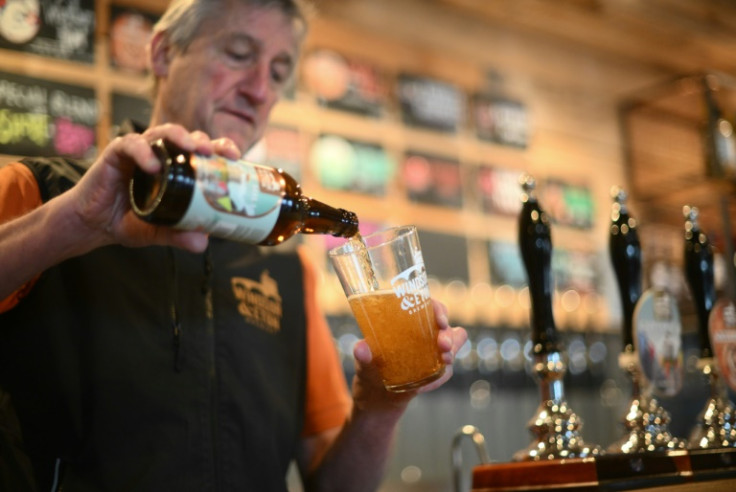Brexit, COVID And Strikes Have Left Hospitality Businesses In 'Crisis'
UK Hospitality says businesses are left in "crisis" mode after the recent Autumn Statement announced that the standard business multiplier would increase by more than six per cent.

Hospitality businesses have been left feeling anxious about being under-staffed and low on cash during the busy Christmas period after Chancellor Jeremy Hunt's Autumn Statement and rail strikes will take a heavy toll on business finances.
This year, the trade body UK Hospitality announced that staffing in the sector was also in a "serious crisis", sourced by thousands of employees leaving the sector for office jobs instead.
Following the COVID-19 pandemic, the Office for National Statistics revealed that job vacancies in the hospitality field were left at 48 per cent higher than pre-COVID.
Brexit has also had negative effects on the sector, with the UK Hospitality Chief Executive, Kate Nicholls, noting: "The workforce shortage is creating a serious crisis."
"Nearly half of businesses are reducing trading hours per day, and a third are having to close on some days each week," she added.
Despite the number of available vacancies in the sector falling by 22 per cent in May this year, UK Hospitality found that the Christmas rail strikes will cost the hospitality industry up to £800 million.
The strikes, which call for fairer working hours and better staffing and wages, were announced by Aslef and will disrupt the busiest trading season for hospitality businesses.
There will be a series of one-day strikes between Saturday 2 and Friday 8 December, according to UK Hospitality. Between Friday 1 December and Saturday 9 September, the transport workers will also be banning overtime hours.
"These strikes will hit hospitality businesses at the start of the critical festive period and will devastate trading during one of the busiest weeks of the year, costing the sector up to £800 million," the Chief Executive of UK Hospitality said.
"I would urge all parties to get back round the table to resume negotiations," Nicholls added.
Nicholls also pushed for the workers to "urgently to reach a solution that avoids these devastating strikes, including following the lead of the RMT who have reached an agreement to avoid strikes over Christmas".
The Chief Executive of UK Hospitality also added that the strikes will have a "significant impact to trading", considering the festive period is vital for the hospitality business to survive the dull business months at the start of the year, particularly January to March.
In regard to the Chancellor's Autumn Statement, Nicholls added that Jeremy Hunt's strategies are essential "to help businesses navigate and offset the damage of ongoing rail strikes".
In his Autumn Statement, Hunt announced that the discounted business rates for hospitality companies will be extended for a further 12 months to assist with the Brexit and pandemic recovery.
The business rate relief allows businesses to claim a discount of up to £110,000 – which could save the average pub a huge £12,800 a year.
Hunt also said that the tax cut, measuring £4.3 billion, has been implemented to recognise "the role of pubs and high street shops in our communities".
In response to the Chancellor's statement, Nicholls said: "The chancellor has brought forward a significant package of business rates measures that will help hospitality businesses across the country."
Hunt also noted that the small business multiplier has been frozen for another year, while the standard business multiplier will increase by 6.4 per cent.
"The decision to freeze the small business multiplier will help those most vulnerable keep the lights on," said the Chief Executive of UK Hospitality.
"However, the standard multiplier rising by 6.4 per cent will see businesses representing almost two-thirds of the sector's trade still facing a £150m rates hike. This will only put more pressure on consumer prices and inflation, at a time when businesses are still grappling with high costs of energy, food, drink and wages," Nicholls added.
© Copyright IBTimes 2025. All rights reserved.






















